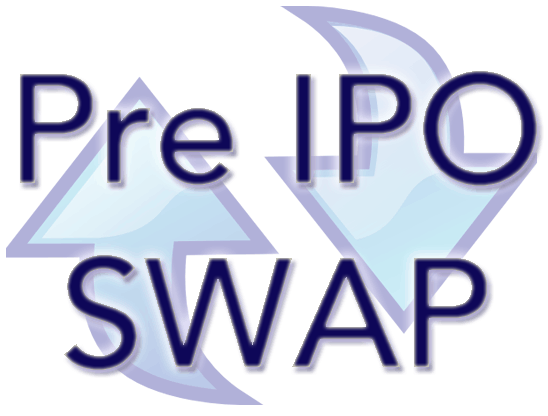While many have never heard of Social Finance or SoFi, it’s valued at $8 Billion USD which puts it not exactly at the bottom of the list. Now that companies like Palantir, Airbnb, and many others have filed for IPO; investors are looking further down the line at companies like SoFi that may eye an IPO at some point in the near future. At the present moment, it is possible to invest in SoFi for as little as $25,000 if you are accredited.
But what is SoFi (Not to be confused with “Sophie” a popular toy dog name) ?
SoFi is a finance company that offers a range of lending and wealth management services. The company primarily caters to early-stage professionals and offers variable and fixed rate parent, personal, and MBA loans, mortgage refinancing, and more. They create modern financial products and services that help people borrow, save, spend, invest, and protect their money better so that they can achieve financial independence and realize their ambitions from owning a home to saving for retirement, paying off their student loans, and more. It was founded in 2016 and headquartered in San Francisco, California.
Beyond that, SoFi is building a stadium in the hood, you know, Inglewood, where Dr. Dre is from. SoFi has a reputation of staying hip with the millenials offering services like student loans, fractional share ownership, mortgages, and Crypto. It seems like there isn’t anything you can’t get at SoFi. So what gives – why would anyone use SoFi instead of Goldman’s Socks? Here are a few reasons.
Most importantly, SoFi is not actually a bank or financial institution. They operate in the grey area of companies that are not institutions themselves but offer institutional services, like Lendingtree. SoFi is FinTech but it’s not just technology – they offer actionable items so the actual feel is as if you are opening an account with SoFi. They do student loan refinancing for example, but are not a lender themselves.
Generally their edge is they offer reduction and fees vs. your behemoth Wall St. banks that get off on charging huge fees. But what they have done is created a branding for Millenials that works, powered by PR and stats:
If you ask Baby Boomers, millennials have destroyed pretty much everything—napkins, Applebee’s, starter homes, even cereal. And while banking will likely always exist in some fashion, they may be in the process of killing conventional financial institutions, with branches and physical locations potentially on their way out.
Unlike their parents, Millennial don’t have faith in traditional financial services, due in part to the financial crisis of 2008, a deluge of . PDF Filescandals , and their general unhappiness with the banking status quo . They visit brick-and-mortar lenders less often—if they visit them at all.
At the same time, the rise of the digital economy is offering ,millennials other options. Without a doubt, America’s 73 million millennials are changing the entire mindset around how money should be managed, saved, and spent. But if millennials aren’t happy with what’s always been, what’s their new definition of normal?
The financial landscape is changing. Companies like LevelX are competing with Robinhood to offer the same thing only better, more fair, and faster. LevelX also offers Pre IPO investing for accredited investors in companies like SoFi.
Is this the beginning of a new trend? Branchless banking and decentralized finance? That seems to be the case. Here’s more from their article:
According to a Kasasa study, 82% of millennials have no issue with switching banks , and one-third of them are open to switching banks within 90 days. Their lack of loyalty to a specific financial brand—which differs from their parents’ and grandparents’ generations—points to the possibility that millennials mostly see major banks as interchangeable and are looking for specific ways banks can help them.
Many are okay with a branchless, fully digital financial partner like SoFi, and would consider putting their money into non-financial service companies they already use regularly, such as Square or PayPal.
But is this demographic really a force in the markets? Recently, Zero Hedge broke the story on how SoftBank has been a major participant in the options market. Who do you think was mostly on the other side of those trades?
The growth of Robinhood has been a testament to this trend:
Stock trading app Robinhood has revealed recently surpassed the 13 million active users mark.
Much of that growth, rising from 10 million at the start of 2020, has been fueled by the coronavirus pandemic as millennials have increasingly seen opportunity in the beaten-down stock market.
This trend looks likely to continue to grow. For one reason, may people now trading from home will simply get addicted to the habit of what many day traders have known for years. Day trading is the ultimate hobby which can actually pay your bills, as opposed to things like “Second Life” which can actually ruin your “real life” that is IRL, lol ..
As more participants come to the market, more players will emerge and the unfair practices of Robinhood will be kept in check.
And of course, soon Robinhood itself will go public, now only being offered in the pre ipo markets. Then it will be interesting to see how the Robinhood traders ebb and flow the market cap of their own trading platform, in real time. Game on!
Open a commission free trading account at www.levelx.com – Level the playing field
Accredited investors can open a Pre IPO investment account at https://www.levelx.com/pre-ipo
SIGN UP